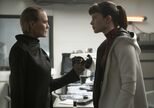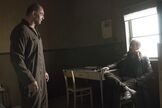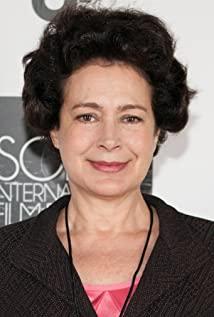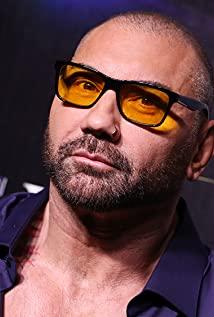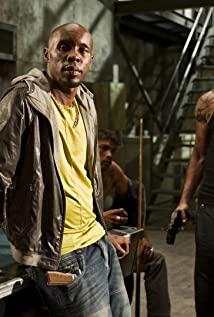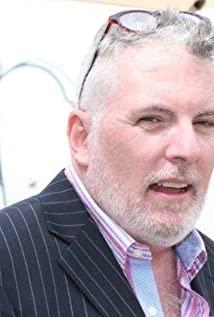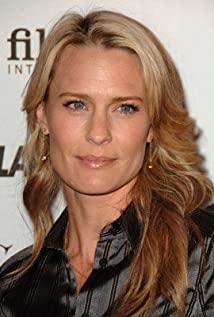The composition of human beings can be roughly divided into three parts: body, emotion, and soul. The biochemical person is no different from humans in appearance (even the internal structure is extremely close to human beings), and the flesh also represents a physical desire, such as the desire to survive. When Wallace held the head of the experimental biochemical man, he had already lamented this desire. He knew how to fear death when he was just born and didn't know what death was. This is one of the benchmark settings for cyborgs, like in the last movie, cyborgs took the lead in attacking humans and protecting themselves when they sensed a threat.
Emotions, when they are small, can be called emotions, such as being unhappy, frustrated, and lacking spirit; when they are big, they are a kind of personality that affects actions for a long time, such as love, depression, optimism and so on. In the design of the biochemical man, according to the settings of the previous part, the previous biochemical man did not have stable emotions. Until the seventh generation, they tried to implant false memories in the prototype Rachael to stabilize their emotions and express their emotions. a stable personality. This also allows cyborgs to behave closer to humans.
As for what the soul is, it is generally necessary to look up religious dictionaries, which belong to the category of metaphysics. But generally speaking, soul, like human nature, is a slightly positive noun in early languages. So when describing some cruel people, foreigners will say soulless, Chinese people say inhuman. Yes, the noun itself has praise and criticism. Although the Tao is defecation, people are still disgusted with the objective metabolite of feces and urine. That's why there is a fiction of biochemical people's pursuit of "soul", that is to say, what distinguishes biochemical people from human beings is an invisible, intangible, metaphysical soul. And between K and the female police officer, there was a dialogue about whether a naturally born biochemical person would have a soul.
There are three species in this story. Humans, cyborgs, virtual humans. Humans are the part that shows the least humanity, the least emotion. What we can see is nothing more than the mediocre low-level life in the slums and lack of personality, or the rude police. In the characters with names, the female police officer expresses the repression of emotions - she has a good impression of K, and drinking at his house is nothing more than a preparation for a one-night stand, but she will not express it. Wallace's body has been remodeled to a considerable extent, and only the desire for power and cruelty are displayed. There is no doubt that in terms of creation, this is the deliberate intention of the director and screenwriter to dehumanize real humans.
On the contrary, cyborgs are much more interesting. Each cyborg has its own different personality and desires, and is loyal to different forces, and is more complex than humans in terms of thinking.
Virtual people are the most expressive of desires and emotions. Except for the N8-type deserter biochemical person who showed no fear of death at the beginning of the movie, JOI was the first one who was willing to "self-sacrifice". If this is a sign of having a soul, Joi may have acquired emotions and souls; human beings have a body and a small amount of emotions; biochemical people have a body and emotions, and to some extent already have a soul.
The three levels in this, the more illusory the more created, the more human-like it is. The contrast in the film is not only at the social level, we can also see that in the huge artificial cement forest, a natural wood carving is worth a thousand dollars (in the original book, the natural product is extremely valuable), and K goes to the most radiation. In severe areas, the bees in the hive live freely.
Humans' self-awareness relies heavily on memory, and since biochemical humans are replicas of humans, they also follow this rule. However, memory only provides emotional support to a continuous and stable personality, and the current self-awareness comes from the external (real) self-recognition. This is a trick PKD likes to play with. Either the truth contradicts the memory, or the memory contradicts the truth.
In this movie, there is a very interesting setting, that is, the cyborg is fully aware that his memories before being activated are all fabricated. This is a very advanced game. Usually these kinds of films are written so that they are all real at the beginning, and then the story develops and it is discovered that they are fake. For viewers familiar with PKD's novels, it should not be difficult to guess that when Stelline told K that "the memory is real", it meant that K was definitely implanted with this memory.
However, creatively, the director did not use an overly dramatic way to explain the reversal. The conflict between K's memory and reality, and the real reversal in the end, should be all a game, not only the memory is false, but even the evidence found in his own adventure was designed by others in advance . There is also a bigger blow, which comes from the huge advertisement facing Joi, the advertisement slogan is "see what you want to see, listen to what you want to hear". In the end, was Joi's love for him sincere before, or did it come from this virtual reality that allows him to see and listen to what he wants? (This dark line, also manifested in K's constant convincing that he is the Messiah, is mainly driven by Joi) This is a real "all is lost" moment. The virtual lover was trampled to pieces, the imaginary father was hijacked, and the truth he was looking for was only a game in the end.
The center of the whole story should be the phrase "more human than human". Can a bioman be more human than a human? When the rebels made this statement, they also tried to tell K that being able to choose to sacrifice for one's own kind was what they thought was the most humane thing to do. The first time I watched a movie and saw this, I was a little disgusted with the existence of these so-called rebels. Mainly because PKD's writing seldom has such grand and grand narratives, such as revolution, sacrifice, etc., basically irrelevant to his story and the protagonist. However, their conclusion based on this belief was that Deckard must be removed so that he does not reveal information about the rebels, and they also believed that Deckard should be willing to do so.
If this is more human, I am afraid it is no different from other forces in the film-because whether it is the female police inspector or Wallace, they all want Deckard to die.
So this is a step where K really chooses to be an independent individual, create an accident, take Deckard to find his daughter, and completely jump out of the three options (but all point to the same goal). When this sequence was complete, we had our most heartbreaking moment, K's farewell to Deckard. It's hard to deny that there is a vague feeling of father-son recognition. Deckard asks who K is and why he does it. K's choice is to repeat the dialogue they had in the casino with D. D tells him that sometimes love means being a stranger. K became a stranger here, dying quietly on the steps of the snow. Sometimes love also represents the desire to be loved. In K's understanding, he always wondered, if it was born naturally rather than made, it should have a soul; if there is a soul, it will become a human being. The urge to yearn for his father, and the hesitation when he handed over the pony horse, are all manifestations of his desire to be the one who was born. How can we deny at that moment that this replicator has a soul?
View more about Blade Runner 2049 reviews





